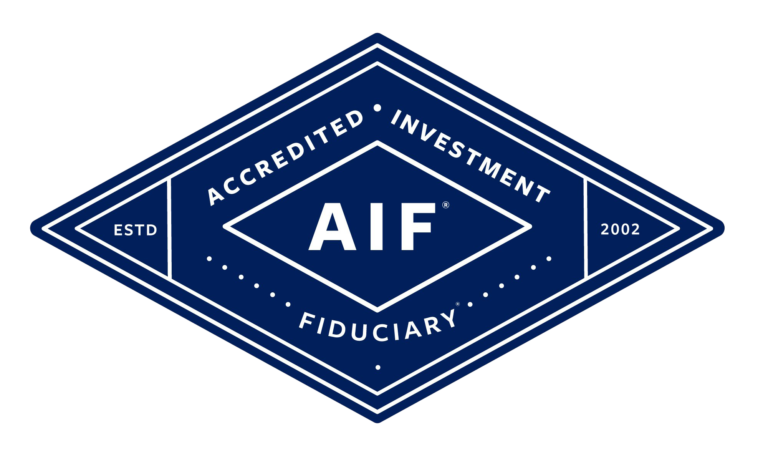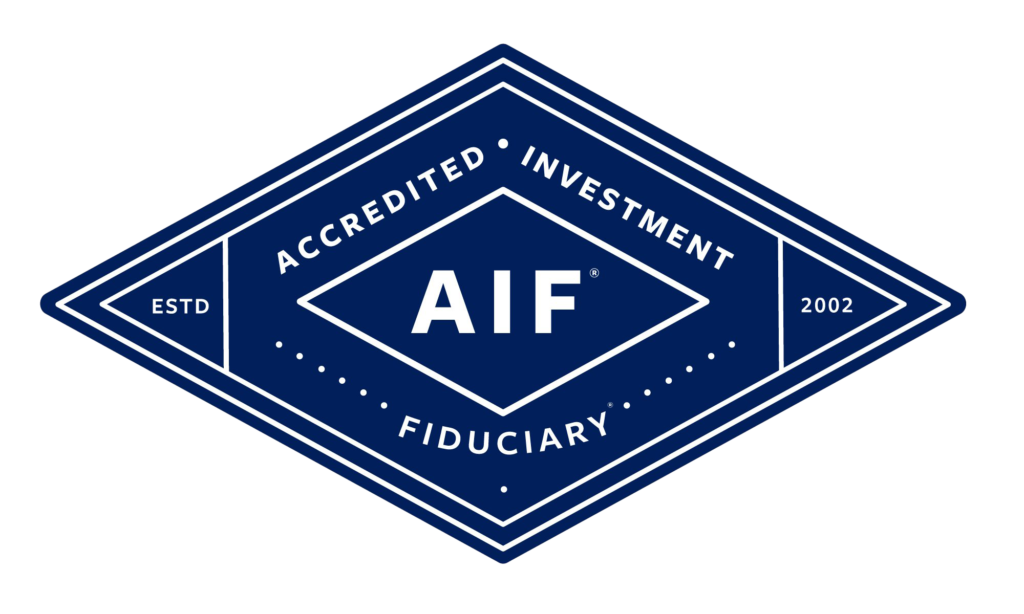
Benefits of Working with an Accredited Investment Fiduciary ® (AIF® ) Designee
Is the investment advice you are receiving really in your best interests?
Does the investment advice help you reduce risks in compliance, litigation and reputation?
Unless your advisor understands and follows a fiduciary process, you can’t really be sure. Even those investment professionals who are required to act as fiduciaries might not have the experience or training to prepare them for this enormous responsibility.
Only AIF Designees have been certified specifically for their ability to follow a fiduciary process with their clients’ best interests at heart.
Here are some attributes that make Joe Motley, AIF® different from other advisors or financial professionals:
Experience
Fiduciary Education
Completed AIF Training.
Read the Prudent Practices for managing fiduciary assets for wealth, nonprofit and retirement clients.
Competence
Successfully passed the rigorous AIF examination to prove comprehension of Prudent Practices and the ability to act in the best interest of clients.
Ethics
Adheres to a code of ethics and conduct standards that show a commitment to a higher degree of industry professionalism.
Continuing Education
Commits to keeping their knowledge and skills sharp by completing annual continuing education requirements.
Stay Informed
Drive the conversation with your investment advisor by asking the following questions:
- Will you act as a fiduciary in all scenarios when managing my portfolio or plan assets?
- How long have you been acting in this fiduciary capacity? Can you describe your experience acting as a fiduciary advisor?
- What fiduciary training have you received? Do you hold any designations focused on fiduciary best practices?
- Provide at least three references of clients who are using your services in your capacity as a fiduciary advisor.
- What services do you provide to help clients meet their fiduciary obligations? Please disclose and describe any potential conflicts of interest.
- Describe your total compensation or fees received for your proposed services.
AIF Designeees have the knowledge and resources to help
- Analyzing and optimizing asset allocations strategies and investment menus.
- Applying objective standards for evaluating and recommending appropriate investment options, products, and solutions.
- Monitoring and reporting plan/portfolio performance.
- Evaluating a client’s current fiduciary practices and recommending actions to help mitigate compliance, litigation, and reputational risks.
- Understanding their important fiduciary roles, responsibilities and obligations with more confidence.
AIF® Designee
What makes an Accredited Investment Fiduciary ® (AIF® ) Designee Different?
Custody of Assets
SEC-registered investment advisers who have custody of their clients’ funds or securities must safeguard those funds as required by the SEC’s “custody rule.”
Disclosures
This site is intended for informational purposes only. All information provided and opinions expressed are subject to change without notice. Any discussion of securities, including any hedge funds or other alternative investments, should not be construed as a recommendation or an offer or solicitation to buy or sell any interest in any such securities.

Small Business Strategies
We’ll cover key challenges self-employed business owners face, and offer a step-by-step guide for advisors looking to serve this valuable demographic.

ERISA Fiduciary
Overview of the roles and responsibilities of fiduciaries as governed by the Employee Retirement Income Security Act of 1974 (ERISA)

Who Holds your Assets
In general, all custodians that RDFP works with are members of the Securities Investor Protection Corporation (“SIPC”) *. They protect customer accounts for a maximum coverage of $500,000 (with a cash sublimit of $250,000) and usually the custodian has an excess SIPC policy with a secondary insurance underwriter for up to an additional $30 million (with a cash sublimit of $900,000) subject to an aggregate limit of $150 million.

More about fiduciary
No matter what they call themselves, Stockbroker, Broker (Registered Representative), Investment Advisor, they are not fiduciaries!

More on being independent
With “Wall Street” being “Wall Street” — independent does not always mean independent!

More on Fee Only
On top of an AUM fee, other financial advisors and brokers may charge other fees!
Below is a breakdown of some of those fees.
Sometimes they will disclose these fee, but most of the time,
They are hidden within the cost of the funds or products that they sell you.

Fi360 is accredited by the ANSI National Accreditation Board for the AIF Designation, making the designation part of an elite group of independently accredited designations in financial services. Fi360, Inc. is a subsidiary within Broadridge Financial Solutions, Inc.
Information for this page came from a document prepared by Broadridge Retirement and Workplace: Broadridge.com/RetirementAndWorkplace ©2023 Broadridge Financial Solutions, Inc.



